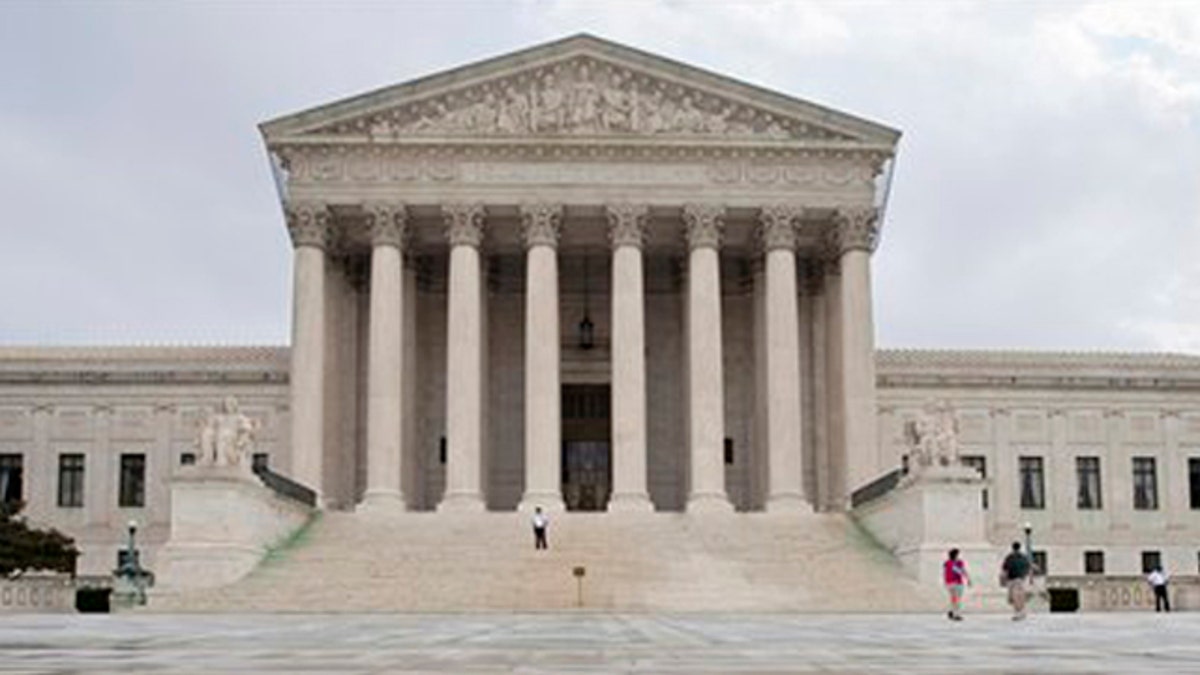
In this Sept. 28 photo, the front of the U.S. Supreme Court is seen in Washington. (AP)
One never knows when the Supreme Court will hand down its last, often biggest, opinions of the term. But the justices' summer travel schedules make it a pretty safe bet that blockbuster health care and immigration cases will be decided by the end of June.
That's because Professor John Roberts, also known as Chief Justice of the United States, has a morning law school class to teach the first week of July. On Malta.
To the north, and at a much higher elevation, Professor Antonin Scalia, will put his law students through their paces in Innsbruck, Austria.
At least two other justices, Samuel Alito and Ruth Bader Ginsburg, also will spend part of July teaching American law students at summer programs in Europe.
Justices have long used summer teaching gigs to add $10,000 to $20,000 to their incomes and also subsidize the cost of family vacations in very desirable locations. It's a coup for the schools to get a justice to lead a class.
Justices can accept roughly $25,000 in additional income for teaching and speaking, beyond their salary of $213,900 a year. The chief justice earns about $10,000 a year more.
Roberts will be in the Mediterranean island nation of Malta for a program led by the South Texas College of Law in Houston and the William Mitchell College of Law in Minneapolis. The Minnesota school is the alma mater of Warren Burger, who was the chief justice when Roberts served as a law clerk at the high court.
Scalia's Tyrolean adventure high in the Austrian Alps is through the St. Mary's University law school in San Antonio, Texas.
Alito is going to Florence for Penn State University's program while Ginsburg will take part in Wake Forest programs in Venice and Vienna.
------
The health care and Arizona immigration cases are the biggest of the 17 cases that remain to be decided by the end of June. But the justices still have to decide on the constitutionality of the Federal Communications Commission policy on regulating curse words and nudity on television, a law making it a crime merely to lie about having been awarded the Medal of Honor and other military medals and life sentences with no chance of parole for 13- and 14-year-olds.
Still, the court is far ahead of its pace in recent years. Nearly twice as many cases were unresolved at this time last year.
In part, the justices appear to have made a concerted effort to clear the decks for the biggest cases.
Ginsburg and Scalia have done their part to make that happen. They have each written seven opinions so far this term, leading the court. The oldest justice at 79, Ginsburg has such a reputation as a speedy writer that Roberts recently joked that it typically takes her just four weeks to churn out an opinion -- lightning fast at the Supreme Court.
Justice Clarence Thomas and Alito each have written four majority opinions for the court, the smallest output.
The court meets again Tuesday to issue opinions.
------
While cameras in the courtroom seem as unlikely as ever, the court has continued to adapt to the times. Beginning June 1, the court will change its website (www.supremecourt.gov) "to improve the mobile device user experience." The site will be able to detect when a mobile device is being used and will automatically adjust the display based on the screen size and orientation, according to the public information office.
This follows other recent changes that put transcripts of arguments online on the same day they occur and argument audio recordings by the end of the week.




